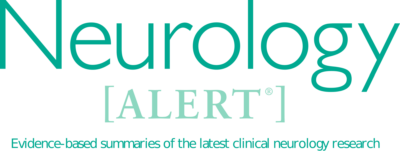
Neurology Alert – March 1, 2013
March 1, 2013
View Issues
-
Endovascular Therapy for Acute Stroke Still of Unproven Benefit: The Quest Continues
Intravenous (IV) or intra-arterial treatment with tissue plasminogen activator (tPA) and mechanical clot extraction can limit the damage that some ischemic strokes cause, but they also can cause complications, including hemorrhage into established infarcts. -
A Newly Discovered Genetic Cause of Alzheimer’s Disease Mutations of TREM2
Inflammation is thought to play a role in alzheimers disease (AD) pathogenesis. Evidence of inflammation is seen in AD brains, including activated microglia, cytokines, and complement components. -
Autoantibodies to N-methyl-D-aspartate Receptor Found in Some Adults with Herpes Simplex Encephalitis: Are They Significant?
Herpes simplex virus encephalitis (HSE) is the most common cause of sporadic fatal viral encephalitis. Although the mortality and morbidity of HSE has been significantly reduced due to early antiviral therapy, even after treatment, about 35% of patients have severe neurological sequelae or even death. -
Subcutaneous IVIG for Chronic Inflammatory Demyelinating Polyneuropathy
s the subcutaneous administration of immunoglobulin (SCIG) as safe and effective as intravenous immunoglobulin (IVIG) for the treatment of chronic inflammatory demyelinating polyradiculoneuropathy (CIDP) as it is for multifocal motor neuropathy and primary immune disorders? -
Abnormal Thalamocortical Structural and Functional Connectivity in Juvenile Myoclonic Epilepsy
Juvenile myoclonic epilepsy (jme), sometimes called Janz syndrome, is the most common idiopathic generalized epilepsy and is characterized by multiplicity of seizure types, including myoclonic jerks on awakening, generalized tonic-clonic seizures, and absence seizures. -
Pharmacology Watch: Aspirin Use and Age-Related Macular Degeneration
In this issue: Aspirin use and AMD risk; using NSAIDs and antihypertensive agents; and FDA actions. -
Clinical Briefs in Primary Care supplement
